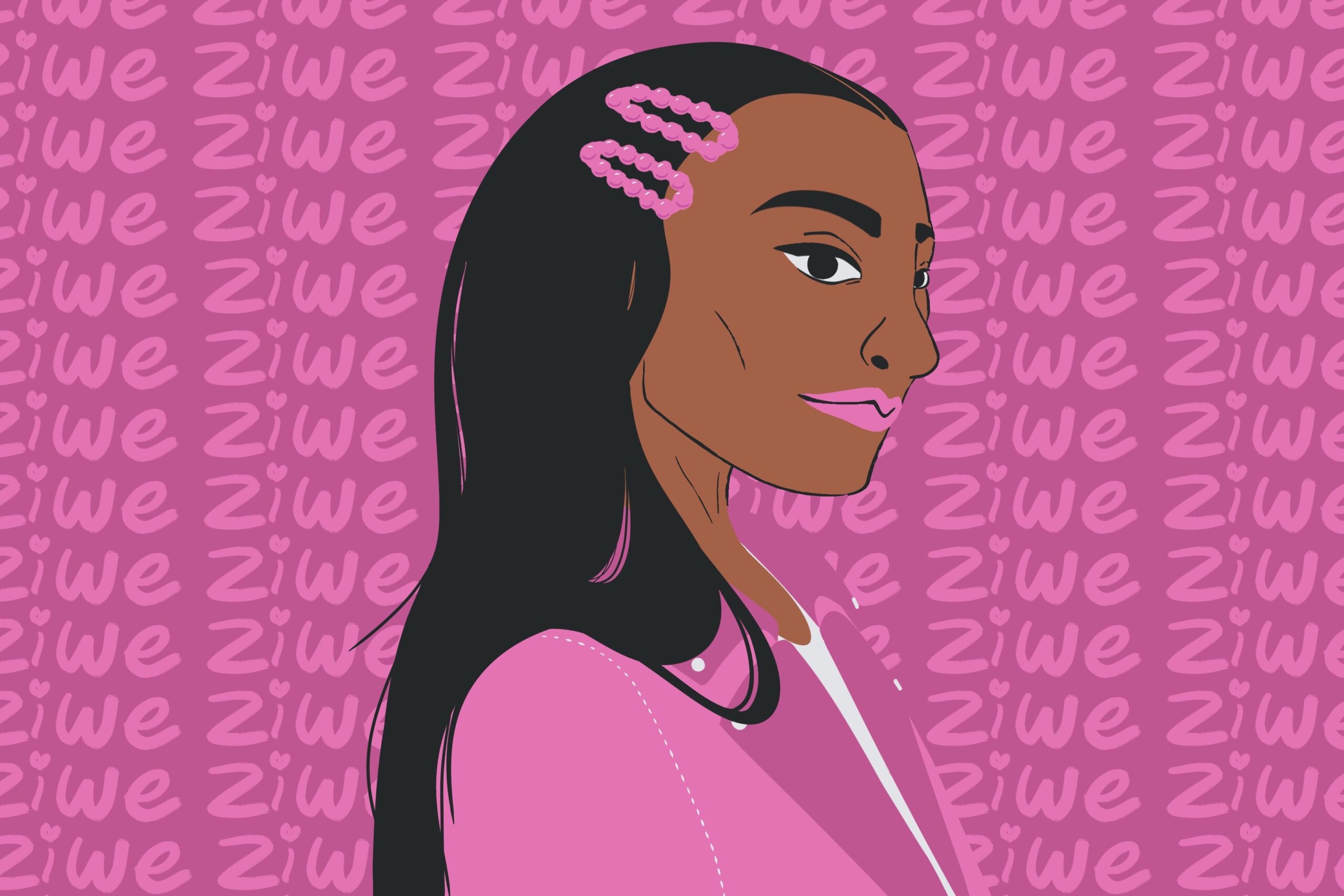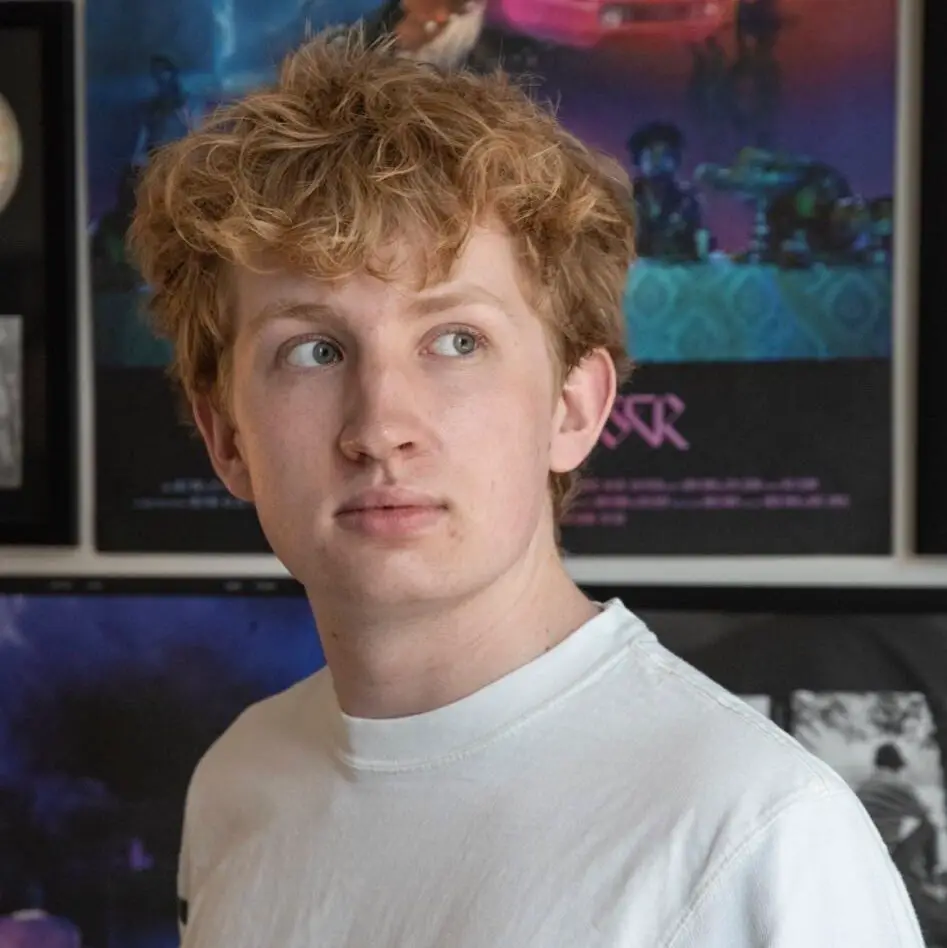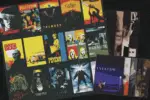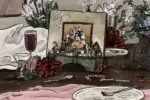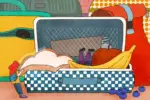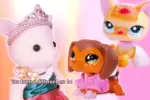The internet’s favorite satirical comedian Ziwe (Ziwe Fumudoh) has made a budding career out of asking provocative questions and squeezing sound bites out of her interview subjects, resulting in a growing online platform fueled by her innate viral potential. In her new book, “Black Friend: Essays,” she allows readers to get to know more of the person behind the persona through a collection of thought-provoking, witty, and undeniably funny essays that touch on a wide variety of social and cultural themes in a way few dare to.
Ziwe started her career as an intern on various late night shows and hosting her own YouTube series. She became a mainstream internet sensation with the premiere of her self-titled hit on Showtime in 2021. The show, “Ziwe,” regularly sparked both controversy (read: essay titled “cancel culture”) and praise for its approach to race, misogyny, wealth and ugly people with Ziwe’s high-profile guests.
Writing has always been core to Ziwe’s brand. She studied poetry in college and wrote for Showtime’s “Desus & Mero.” But Ziwe can now confidently add “author” to her already extensive resume.
The introduction for “Black Friend: Essays” immediately demonstrates Ziwe’s flair for conveying satire through written word. After being informed that her book has been “ranked as the #1 new release in ‘Discrimination and Racism’ on Amazon,” she shares her sarcastic concern that “people may get the wrong idea and think that I am pro-racism when in actuality, I am indifferent.”
Her dry wit brilliantly shines through as it simultaneously encourages you to laugh alongside her, while pondering the broader meaning of her comedy.
She explains the meaning behind the book’s title and writes that in narrating this autobiographical collection of essays, Ziwe takes on the role of the reader’s “Black friend,” playing on the stereotypical “token” friend of color that often isn’t afforded complexity in popular media.
“Black friends come in all shapes and sizes. Yet, the archetype is often a two-dimensional character meant to support the non-black protagonists’ more complex humanity,” she writes. “While I am a supportive friend, I am not a supporting character. I am the protagonist of my perfectly imperfect story.”
In “how many black friends do you have?” Ziwe dissects the loaded age-old question that she frequently asks her interviewees. In repeatedly asking her various subjects this question, she points out a pattern in responses that always seems to land somewhere around “four to five.”
Within the essay, she admits that the question itself is a trap that only leads to more lines of questioning (“Why do you count your black friends? […] Are you prepared for a FOIA request to verify the validity of these black friendships?”).
“So, four to five black friends becomes a signifier that you are the good kind of non-black person. You have black people in your life, but not so many that it feels like a fetish,” she writes.
Her mix of comedy and truth blends together so seamlessly that it pushes readers to evaluate their own response to the question, and all of the question’s complexities.
Within each essay, hyperbole, irony, and caricature flow plentifully.
Through explorations like this she pushes readers, particularly those who are not Black, to evaluate their own biases and behavioral patterns when it comes to race. But counting Black friends is far from the only topic Ziwe dissects.
The essay,“affirmative actions,” lands toward the backend of the book, and provides some of Ziwe’s most powerful insights. Rather than tackling the mammoth social and cultural topics fans are used to, she draws back the velvet curtain of her famously confident persona and discusses her anxieties about breaking into the professional world of creative occupations.
After pivoting from math to African American studies and poetry in college, she describes beginning to infuse themes of race into her poetry and other creative work. She unabashedly admits that “poetry is cringe,” but acknowledges the importance of poetry’s role that began to develop and strengthen her skillset during college.
“My work was often so inconsistent in its voice and tone and point that it was impressive. But in that abyss where the only matter that exists is the faint promise of my potential, I wallowed in the volume of my bad words, tinkering away,” she said.
Within her recount of how poorly she deemed her work at the time, an important lesson for young and aspiring creatives emerges.
“My best advice is that you should never be afraid of being bad. Embrace the cringe. The only way to get good is by spending countless hours working on your craft. It took me too long to understand why I felt compelled to write, but eventually I realized that my life experiences had offered me the merit of something unique to say.”
Hearing one of the industry’s premier, and (seemingly) always confident, voices share her own work insecurities is astoundingly comforting and important. Creatives who have achieved great success often gloss over the difficult periods in their careers, (“blood, sweat and tears” has been used a time or two thousand). Otherwise, they may make extremely veiled admissions of insecurities just to quickly pivot to a reminder of their present day achievements.
To young creatives dreaming of achieving similar pillars of success, this act is not only unhelpful, but is discouraging.
Having a figure such as Ziwe, who has accomplished so much in (what seems like) such a short time, expressing her self-doubts and acknowledging that she was not always producing work to the polished caliber that she does today, is both encouraging and inspiring.
Creative pursuits are often not linear, and may only find success after hearing a ridiculous amount of no’s. Ziwe’s reminder of this unfortunate but vital fact not only underscores the uncomfortable process of fine tuning your own work, but also touches on taking — and making — every opportunity you can for yourself.
She shares that a Comedy Central diversity program (and attending a prestigious Midwestern university) provided her with the stepping stones to open doors for herself. Amid her retelling of the story, she acknowledges how vital the diversity programs she took part in were to her success, as they provided her with small openings in doors that would have otherwise likely been shut.
“There need to be ways other than the divine alignment of living a stone’s throw away from one of the best private schools in the world and then attending a midwestern college by happenstance because I thought New England was getting boring,” she writes.
“If my career is a living testament of anything, let it be that one opportunity is not enough. It is a series of cracked-open windows and doors that have gotten me into a position of what I would describe as fleeting power. We need as many opportunities as possible. To fail, to be bad, and then to eventually succeed.”
Though “affirmative actions” is not the final essay of “Black Friend,” it acts as a kind of resolve to the misconceptions about Ziwe’s career and self, while also delivering an air of inspiration. “I went and looked for every opportunity I could to pursue writing comedy. And I was rejected from them all,” she shares. “When it comes to comedy, all I could do was fail. But I did not let being bad stop me.”
To an aspiring comedy writer, or any other young creative, “Black Friend: Essays” might just be the force that pushes someone to send in their application for that internship they’ve been eyeing for weeks. Or, it could motivate them to cast out their email pitches to various publications, unafraid of the inevitable no’s (or the even more common lack of response) they’ll undoubtedly receive.
As someone who seemingly had all of the odds stacked against them, Ziwe is living proof that prying open a cracked door with a healthy amount of humor and sarcasm, you might also find yourself atop the list of most popular “race & discrimination” books.
That, along with any other dreams you might have.
Find “Black Friend: Essays” at your local bookstores today.


